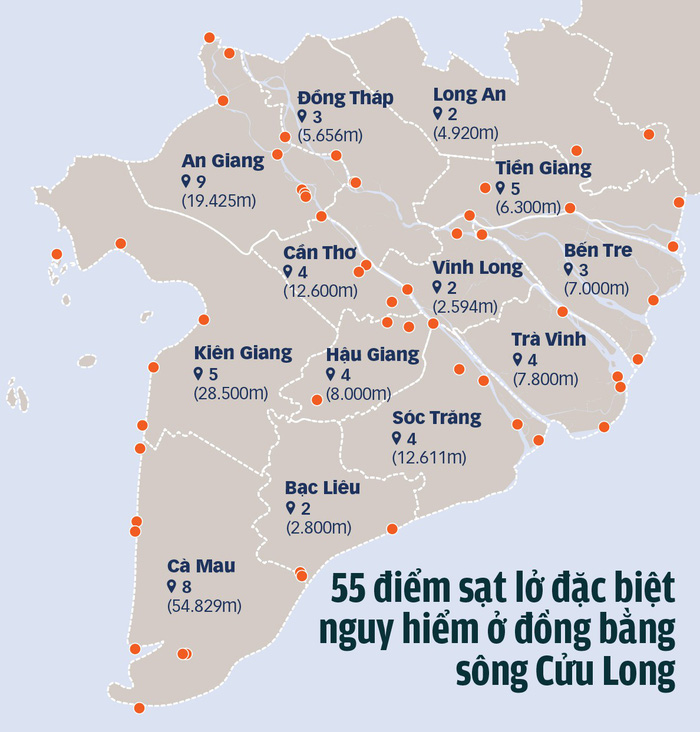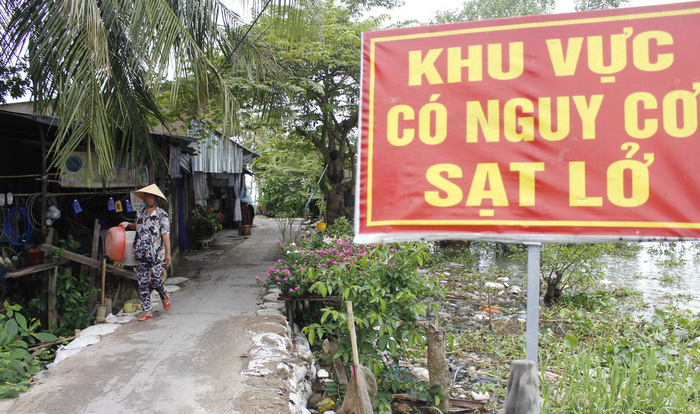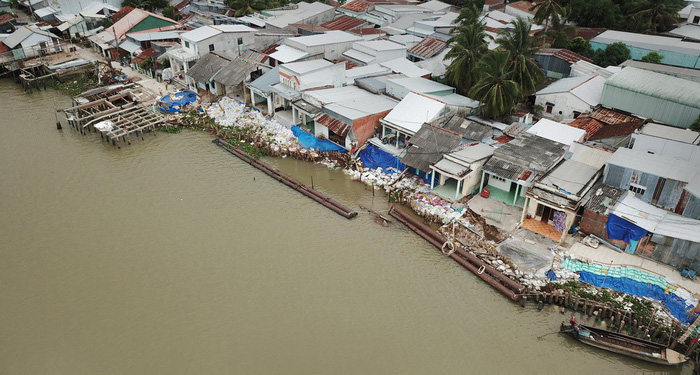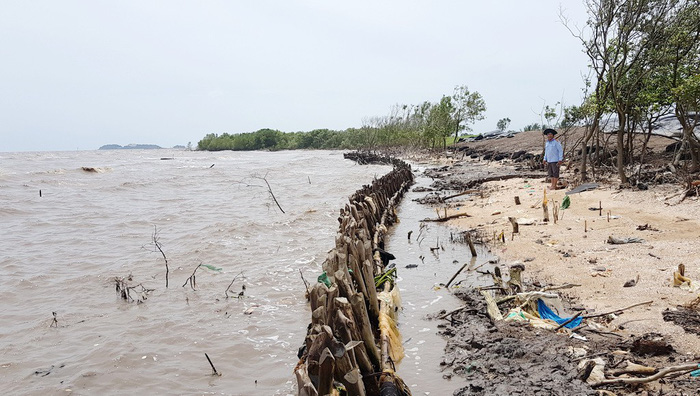he Mekong Delta in southern Vietnam, the country’s biggest rice-growing region, is suffering from serious and widespread bank and coastal erosion, threatening the livelihood of millions despite authorities’ costly efforts to contain the occurrence.
An online map released on Monday by Vietnam’s agriculture ministry revealed a shocking statistics: 562 locations in the country’s Mekong Delta is at risk of coastal and riverbank erosion, including 55 spots where the situation is especially critical.
While erosion used to be a problem limited to upstream areas, in recent years more incidents of land and house devoured by the water have been reported in even downstream neighborhoods.
In one neighborhood in Cao Lanh District, Dong Thap Province, a recent landslide along a tributary of the Mekong River has swept away entire houses and left survivors living in a constant fear of falling victim to the river.
Nguyen Thanh Hong, who lived next door to families who had their houses destroyed in a 2016 landslide in Dong Thap, said he had just returned to the area after spending one year living elsewhere for his own safety.“I returned thinking that the area was now safe to inhabit, only to experience another landslide not long after moving in,” he said.
“I may have no other choice but to leave this place for good.”
 |
| A map of 55 areas with ‘especially serious’ erosion situations in the Mekong Delta region of southern Vietnam. Graphic: Tuoi Tre |
In neighboring Vinh Long Province, a 200-meter whirlpool that occurred a few months ago on the Hau River sank four houses and swept away land as far as 20 meters from the riverbank.
A month later, over 30 houses in the affected area, which had been vacated for safety, were completely destroyed in a predicted landslide.
Along the Vam Nao River in An Giang Province where a high-profile landslide in 2017 sank 14 houses and caused over VND90 billion (US$3.9 million) in damage, the once bustling neighborhoods have been turned into ‘ghost towns’ as residents abandon their homes out of safety concerns.
Solutions in place
Vo Thanh Ngan, deputy director of Dong Thap Province’s Department of Agriculture and Rural Development, said the provincial administration had already enforced stricter regulations on sand mining on local rivers and attempted to redirect the river current to prevent future landslides.
In addition, no construction permits will be granted to projects located close to the riverbank, while the building of houses along high-risk areas are strictly forbidden, Ngan said.
 |
| A public sign in Vinh Long Province warning residents of landslide risks. Photo: Tuoi Tre |
Lam Quang Thi, deputy chairman of An Giang Province, said both “construction and non-construction measures” are being taken by the provincial administration to combat erosion problems.
Specifically, embankments will be built along vulnerable riverbanks, while residents will be relocated to make space for more trees to be planted in those areas.
“There have been serious developments concerning erosion-related landslides,” Thi said.
“Strict measures are in place to protect the lives and properties of residents.”
In the immediate future, the chairman said An Giang Province would spend VND626 billion ($27.4 million) in building new settlements for over 2,700 households in affected areas.
The Mekong Delta region of Vietnam is made up of 12 provinces and the municipality of Can Tho, which all rely on the Mekong River and its tributaries for their agricultural activities and transport.
The region of 18 million people accounts for over half of Vietnam’s rice production and around 90 percent of the country’s rice exports, according to 2017 statistics from the General Statistics Office of Vietnam.
 |
| Houses along a riverbank in Can Tho City are sunk in a landslide in May 2018. Photo: Tuoi Tre |
Like us on Facebook or follow us on Twitter to get the latest news about Vietnam!



















































